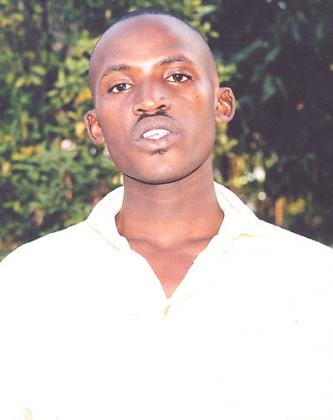Suleiman Rusarika, a second born in a family of nine and the only survivor from his family watched helplessly as his parents and sibling were butchered by the Interahamwe militia during the 1994 Genocide against the Tutsi.


Suleiman Rusarika, a second born in a family of nine and the only survivor from his family watched helplessly as his parents and sibling were butchered by the Interahamwe militia during the 1994 Genocide against the Tutsi.
Rusarika, then a Primary Five pupil at Remera Catholic School in Kigali, vividly recalls how the school was closed suddenly and pupils told to go home following the death of former president Juvénal Habyarimana in a plane crash.
Rusarika says that when he returned home, he found everyone scared and packing their belongings. The following morning, the entire village was on the run.
"I realised something unusual was about to happen. At around 4am in the morning, my mother moved to our bedroom to wake us up. She had packed everything and, we headed to Nyagatovu Church where other people in our village and neighbouring communities had sought refuge,” Rusarika recalls.
At around 8am, after morning prayers, the church was attacked by the militia who ordered everyone to present their identification cards. While the Hutu were spared, many Tutsi were killed on the spot.
"I stood close to a killer. I could feel his machete brush by my face and lips. It was as if I was kissing death, waiting for my turn to be hacked,” Rusarika says.
The then 10-year-old resident of Nyagatovu cell, Kimironko Sector, Gasabo District says he was rescued from the bloodthirsty Interahamwe by a calf.
Suddenly, as the killers butchered people, a calf came running out of a nearby cassava plantation and it is this calf that saved his life.
"When the killers saw the calf, their attention shifted towards catching and slaughtering it. I and my family then got a chance to escape,” Rusarika says.
That same day, however, the family’s neighbour, only identified as Karekezi, revealed to the Interahamwe the whereabouts of the family. The killers, including some soldiers, then descended on their home.
"They found us inside the house. My father bravely fought them but was shot dead by a soldier after he had overpowered the militiamen. It was so sad to watch him dying, but equally sad that he was murdered by people who should have saved his life (government soldiers),” Rusarika says.
The same attack claimed all his other family members leaving only him. The hacking to death of his family was allegedly orchestrated by Karekezi, a neighbour whose whereabouts are still unknown.
"I was hiding in my parents’ bedroom. After killing all my family, the killers embarked on a looting spree. One of them came into the bedroom, picked the mattress and moved out. I followed him and no one recognised me. That is how I survived,” Rusarika recalled.
Once away from the killers, Rusarika moved back to Nyagatovu Church, which was under the protection of Muvumba battalion, a government army unit that was battling the Rwanda Patriotic Front (RPF) soldiers at Parliament buildings. At Nyagatovu, Rusarika was forcefully recruited into the Muvumba battalion commanded by "Afande” Turatsinze. His tasks involved fetching water for the soldiers in exchange for food.
"Turatsinze knew I was a Tutsi, but spared me after I promised to work on his farm after the end of the war,” Rusarika said.
It was not until the Genocide was stopped by the RPF/A toward the end of June that Rusarika’s hope for life was restored.
Rusarika is now married and he is a father of a one-year-old girl. He is a professional driver and a civic peer educator for Gasabo District. The Senior Six graduate says he has recovered most of his departed family’s property and redeveloped his father’s land.


